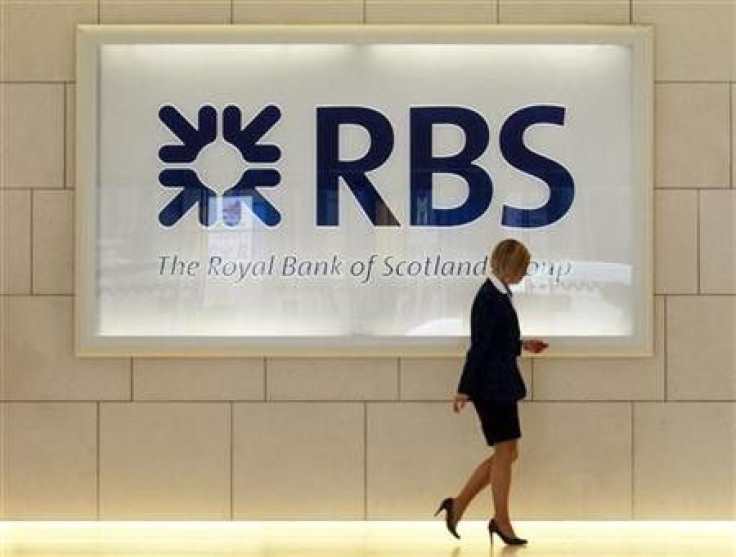Moody’s Downgrades 12 British Banks

Moody’s Investors Service has downgraded the senior debt and deposit ratings of 12 British banks, including Royal Bank of Scotland Group (NYSE: RBS), Santander UK and Lloyds Banking Group plc (NYSE: LYG), citing that the coalition government of Prime Minister David Cameron would be unlikely to offer support in the event of a collapse.
Indeed, both RBS and Lloyds already received huge government bailouts during the 2008 global credit crisis and are now partially state-owned institutions.
Shares of RBS and Lloyds were down as much as 3.5 percent in London trading.
The credit agency pointed to its “reassessment of the support environment in the U.K., which has resulted in the removal of systemic support for seven smaller institutions and the reduction of systemic support by one to three notches for five larger, more systemically important financial institutions.”
Moody’s believes that the UK government will “more likely now … allow smaller institutions to fail if they become financially troubled.”
However, Moody’s emphasized that the ratings reductions “do not reflect… deterioration in the financial strength of the banking system or that of the government.”
Two of Britain’s most prominent banks. Barclays (NYSE: BCS) and HSBC Holdings (NYSE: HBC), did not receive downgrades.
George Osborne, the Chancellor of the Exchequer, seemed unfazed by the wave of downgrades. He told BBC: “One of the reasons they’re doing this is that they think the British government is actually moving in the direction of trying to get away from guaranteeing all the largest banks in Britain, in other words trying to deal with the too-big-to-fail problem.”
Osborne referred to the Vickers Commission report, which advocated the separation of retail and investment banking. As part of the government’s plan to restructure the entire banking system.
“In other words, people ask me, how are you going to avoid Britain and the British taxpayer bailing out the banks in the future?” he told BBC. “This government is taking steps to do that, and therefore credit ratings agencies and others will say, well actually, these banks have got show that they can pay their way in the world.”
Others are less sanguine.
Max King, a portfolio manager at Investec Asset Management, expressed his concerns to BBC.
"People are getting a little paranoid about the UK banking sector,” he said. "It doesn't have the same exposure to sovereign default and devaluation risk as the rest of Europe. It does have exposure to Ireland, but that is a Eurozone country which appears to be doing best in the crisis.
RBS said it was "disappointed" by the downgrade, citing that Moody's did not take into account the "significant progress" the bank had made to restructure its finances.
"We do, however, see the removal of implicit government support for the UK banking sector as being a necessary and important step forward as the sector returns to standalone strength," RBS added in a statement.
However, the Financial Times reported on Friday that RBS may need another government bailout.
© Copyright IBTimes 2024. All rights reserved.











